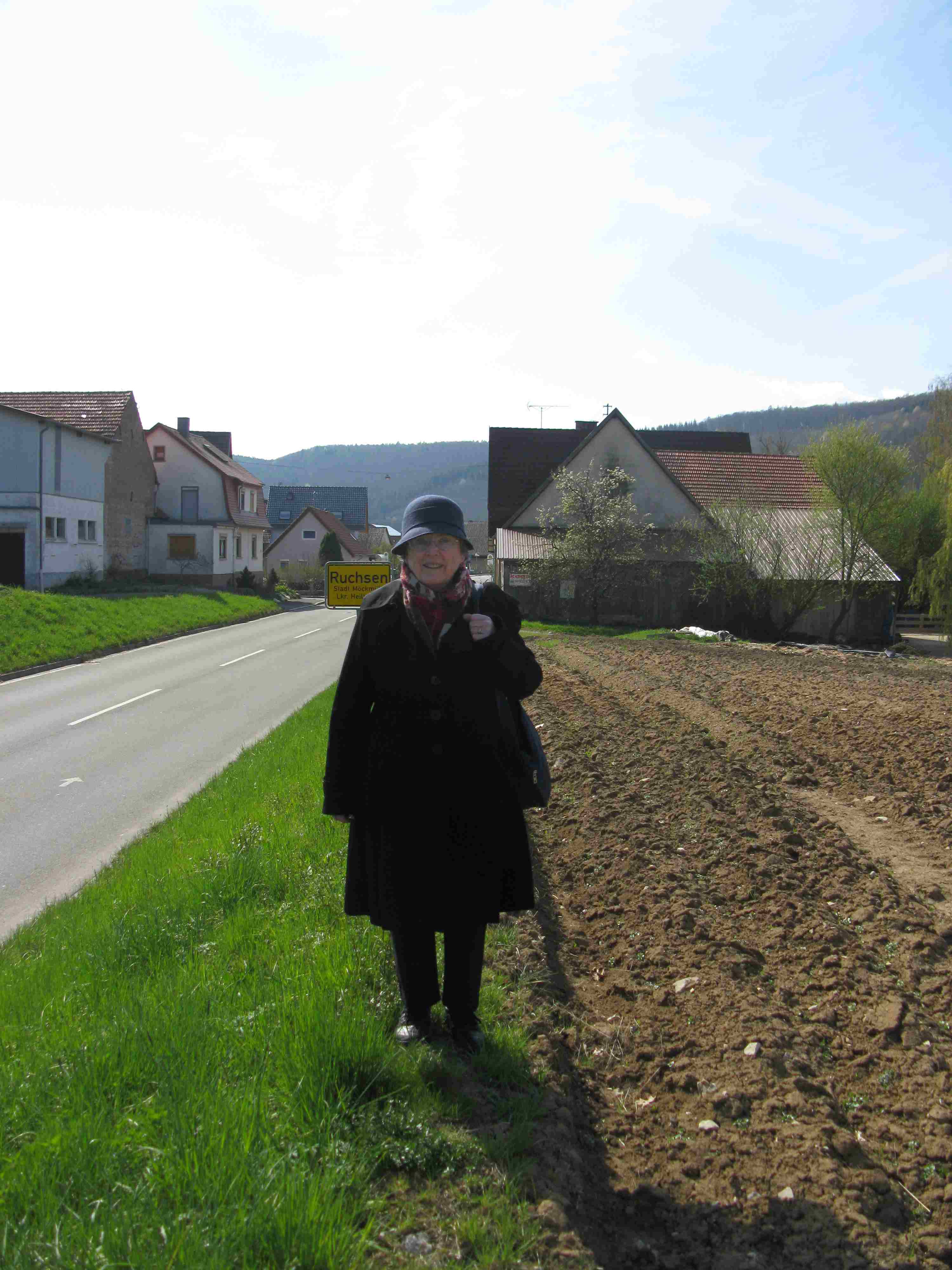 Elsa in Ruchsen
Elsa in Ruchsen
Another of Elsa's great-grandmothers was a Sinzinger, a surname uncommon not only in the U.S. but also in Germany. When we found such a name not far from where we were traveling, we knew we had to make a visit, so we took a trip from Heilbronn to Ruchsen.
 Elsa in Ruchsen
Elsa in Ruchsen
To reach Ruchsen, you take the train to Möckmühl, then a bus. When the train pulled into the Möckmühl station, we found the bus stop just as advertised, but we had to cross the street to sit on the bench for the bus-to-Möckmühl as opposed to the bench for the bus-from-Möckmühl. It was a trip of perhaps one mile.
The bus took a right, then a sharp right (when we saw a sign for Ruchsen 2 km) and followed around a long curving road slowly winding up a gentle terraced hillside to the tiny village of Ruchsen on top. Most of the road had a sidewalk and we resolved to return to Möckmühl on foot. In Ruchsen we walked up the hill from the bus stop to the church which was not open. It was clear that Ruchsen was simply a farming village. The few businesses were farm-related. We admired the sturdy stone houses, with farm lots beginning right out the back door, and tractors parked in the driveway, and the occasional barn and perhaps some farm animals.
Returning to Möckmühl, we passed a number of small old vineyards on the hillside right next to the road, all ascending almost vertically, edges marked by stone steps. Here and there a tool shed stood. Some vineyards were untended and empty, possibly only temporarily. The only people we saw were one woman gardening and one unsmiling man driving his tractor very slowly along the road.
 Steps to tiny vineyards
Steps to tiny vineyards
We were hungry when we got to Möckmühl and it was just about noon, but the town was empty and most of the stores were closed. The town square did have the requisite greenery left over from Easter. We returned to the train station where things weren't much better, settling on a rather undistinguished wurst salat (strips of bologna and salad vegetables with a vinegar sort of dressing) Oh, well.
As we waited for the next (local) train, more and more and more children began to fill the Möckmühl station, waiting to take the train. They waved to a few local kids going home from school, and then they boarded the train, a few of them getting off at each of the next five stations until finally the train was quiet for our last leg into Jagdstadt where we changed to the Heilbronn train. We were intrigued by schoolkids riding a train to a small town for public school, and we wondered if there was lots of homework, because they were going home at 1:00 p.m.